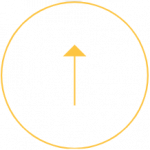Public Health After COVID:
beliefs, religion and competing epistemologies
26-27 May 2023, King’s College London
Communities of trust, expert knowledge, reliability of evidence, and competing rationalities have become central issues in public health responses to the global pandemic. This conference foregrounded how religious identity has been a significant factor in shaping, producing, and permeating individual and collective discourses and choices around health, healing, and vaccination. These discussions have had significant impacts upon individuals’ health, as well as affecting national and international policies related to COVID-19.
In response, this conference explored a plurality of contemporary global framings that relate to beliefs about health and healing, particularly those pertaining to religious worldviews. It also explored how various competing and marginalised understandings are drawn upon by individuals and groups when making choices about health and wellbeing. Attention was given to both the beneficial and detrimental effects that these diverse worldviews may have for public health with specific attention to the pandemic.
The Conference was made possible by a grant from British Academy – Wellcome Trust, with institutional support from Open University, King’s College London and Inform.
Funding for the production of the videos was gratefully provided by the Bach Flower Essence Trust.
Conference convenors:
Dr Suzanne Newcombe, The Open University and Inform
Dr Karen O’Brien-Kop, King’s College London
26 May 2023 – Panel 1
Global and Plural Paradigms of Belief, Health and Healing: Focus on Asia
Frameworks for promoting health and healing have always been pragmatic, plural and subject to trans-cultural exchanges. This panel will focus on exchanges between medico-religious traditions of historical Asia and the ways in which ancient historical fundamentals of religious healing have survived and flourished into the present day, finding new audiences worldwide. Ayurveda, Daoism, Siddha medicine and Yoga provide powerful worldviews that are incorporated into the self-understandings of billions of people globally. In different contexts these worldviews can be associated with autonomous healing traditions outside of mainstream biomedicine. What are the conflicting epistemologies that can intersect to produce vaccine hesitancy and/or misinformation about Covid-19? What factors have shaped these group discourses and choices historically to inform and influence present-day attitudes to the pandemic? How has the impetus of globalisation accelerated these processes in recent decades?
Dominik Wujastyk, University of Alberta, Canada
‘Medical Epistemologies, Trust and Traditional Medicine in India’
Suzanne Newcombe, The Open University, UK
‘Yoga, indigenous Indian medicine and the importance of interrogating the experiential episteme’
V. Sujatha, Jawaharlal Nehru University, Delhi, India
‘Could we understand the pandemic without the virus? The use of Siddha medicine in the management of infectious fevers in Tamil Nadu’
Dominic Steavu, University of California, Santa Barbara, USA
‘Daoist Meditation as Ritual Framework in Post-Covid Psychedelic Self-Care and Therapy’
26 May 2023 – Panel 2
Reactions to Covid-19 in Local Contexts
This panel will examine how historical epistemologies are being revived and expanded for the post-Covid age, putting local contexts on the global stage.
Hasidic communities draw upon Jewish theological and mystical epistemologies in negotiating their interactions with secular health authorities, what were the specific reactions of these communities to public health messaging during Covid? In Africa and its diaspora, Pentecostal Christian theories of healing through religious practices are gaining greater prominence in public health responses to the pandemic. Meanwhile in Korea, shamanism and Covid-19 responses are intertwined with media trends. What insights can we gain from comparative analysis of localised case studies? How are marginalised knowledges being adopted in national health strategies as a means to ensure greater reach for policy interventions? In what ways are communities and public health authorities reviving historical religious modes of healing for a post-pandemic age – and with what motivations, hopes and effects?
Heather Munro, King’s College London, UK
‘The Rise of Alternative Therapies and Traditional Medicine in Hasidic Communities’
Abel Ugba, University of Leeds, UK
‘There is always a reason, but not always an explanation: A critical exploration of notions of health, healing and wellbeing in African Pentecostalism’
Liora Sarfati, Tel Aviv University, Israel
‘Covid19 and the Understanding of Illnesses in Korean Shamanism’
26 May 2023 – Panel 3
Transnational Approaches to Health and Healing in the time of Covid-19
In some cases, transnational religious networks work to promote self-healing, greater wellbeing and health and are integrated into mainstream public health systems. The same beliefs and practices can at times cause harm to those who choose them in addition to, or instead of, biomedical interventions, and these networks can simultaneously work to undermine mainstream biomedical narratives about promoting health and wellbeing. This panel will highlight alternative beliefs and practices that are transnational in nature but which have unique characteristics and modes in local contexts. How have Buddhist models of medicine, such as mindfulness meditation, been
employed in the Global North in mainstream biomedical understandings of mental health? How have Latin American worldviews informed by mediumship and healing spread to diaspora communities in North America and Europe? How has Covid-19 misinformation gained traction through religious and non-religious worldviews, and what lessons can we learn?
C. Pierce Salguero, The Abington College of Pennsylvania State University, USA
‘A Survey of Attitudes Toward Covid-19 Vaccines among Asian Medicine Practitioners in the US’
Joana Bahia, State University of Rio de Janeiro, Brazil
‘Transnational Mediumship: Interconnections of Afro-Brazilian Religions, Healing and Technology’
David G. Robertson, The Open University, UK
‘Covid, Conspiracy Theories and Marginalised Knowledge’
Eugenia Roussou, Centro em Rede de Investigacao de Antropologia, Lisbon, Portugal
‘Epistemologies of Contemporary Spirituality and Healing after Covid: Pluralising Afflictions, Competing Beliefs in Southern Europe’
26 May 2023 – Panel 4
Contemporary Clashes – Competing Paradigms in the Post-Covid Age
This panel will explore the competing epistemologies in public health rhetoric and think about ways forward for mainstream public health discourses. A tension exists between an inclusive public health agenda and ways in which alternative epistemologies can drastically destabilise public health. Marginal and marginalised identities, such as subcultures associated with yoga and shamanism are among networks of online vaccine misinformation and resistance. While other minority groups have longstanding skepticism of biomedicine based on colonial impositions on health and autonomy which have continued beyond the period of formal colonialism. For historical, pragmatic and social reasons, former colonised nations and their diasphoric communities have often met health and wellbeing needs through networks that overlap with religious beliefs and practices. How can these tension be better discussed and understood in order to best promote the health of all in our interconnected, global world?
Kin Cheung, Moravian University, USA
‘Placebo Effects and Qi: Incommensurable Paradigms of Healing and Mind-Body’
Quinton Deeley, MD, King’s College London, UK
‘Trust and Doubt in the Internet Age: QAnon, Vaccine Hesitancy, and the Politics of Belief’
Azita Chellappoo, The Open University, UK
‘Epigenetics, Precision Medicine, and Inherited Trauma: Unpacking the Relationship between Indigenous Epistemologies and Health Interventions in the Postgenomic Age’
Inform is a registered charity, no. 801729. Company no. 2346855. Terms and Conditions


